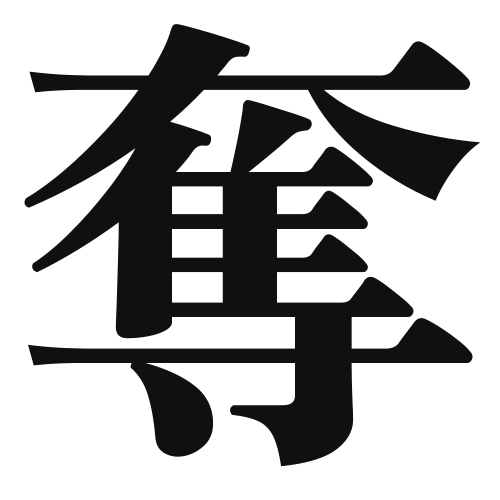1. Overview of Meaning
The kanji “奪” (datsu) means “to take away” or “to seize.” It conveys the idea of forcibly removing something from someone or something.
2. Formation and Radical
Formation of the Kanji: The kanji “奪” is a compound character that combines elements to convey its meaning. It consists of the radical “女” (woman) and “猿” (monkey), suggesting a scenario where something is taken away, often associated with a struggle or conflict.
Radical: The radical of “奪” is “女,” which often relates to femininity or women in various kanji.
3. Examples of Usage
Common Words and Phrases: Some common words that include “奪” are “奪取” (dasshu – to seize) and “奪われる” (ubawareru – to be taken away).
Example Sentences in Daily Conversation:
- 彼は私の財布を奪った。 (Kare wa watashi no saifu o ubatta.) – He took my wallet.
- その事件は多くの人々の自由を奪った。 (Sono jiken wa ooku no hitobito no jiyuu o ubatta.) – That incident took away the freedom of many people.
4. Synonyms and Antonyms
Similar Kanji: A similar kanji is “取” (toru), which means “to take” but does not carry the connotation of force or violence that “奪” does.
Opposite Kanji: An antonym is “与” (yo), which means “to give,” representing the act of providing rather than taking away.
5. Cultural and Historical Background
Relation to Japanese Culture: The concept of “奪” is often reflected in Japanese literature and history, where themes of conflict and struggle for power are prevalent.
Proverbs and Idioms: One relevant proverb is “奪われたものは戻らない” (Ubawareta mono wa modoranai), which translates to “What is taken away will not return,” emphasizing the permanence of loss.
